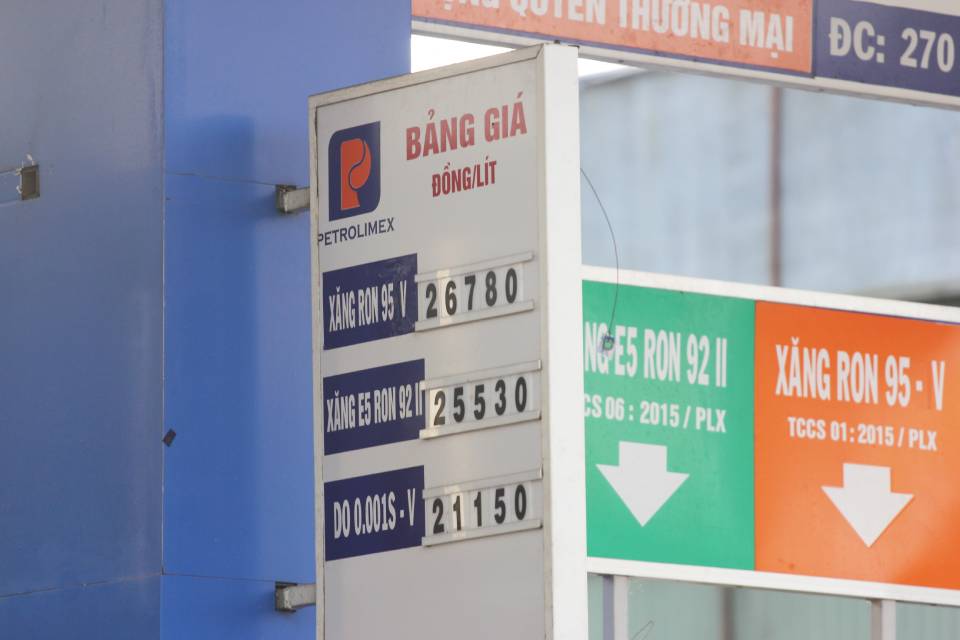HCMC – If the fuel prices are revised up further in the coming periods, some taxes and fees should be reduced to stabilize the local fuel prices as the national fuel price stabilization fund is limited, said Tran Duy Dong, head of the Domestic Markets Department under the Ministry of Industry and Trade.
The tax and fee cut will put pressure on the State budget revenue collection, Lao Dong newspaper reported.
However, the State should share the difficulties of local residents. The State’s resources have yet to be tapped to deal with the fuel price hike and only the national fuel price stabilization fund has been used.
If the crude oil price increases, the State budget revenue will also be higher, so taxes and fees should be cut, Dong added.
According to the Ministry of Industry and Trade, Nghi Son Refinery and Petrochemical LLC has cut the capacity of its refinery to 55%-60% due to its financial burden. As a result, the volume of fuels handed over to traders in February fell some 43% over the plan.
In March, the refinery was expected to supply over 80% of the planned volume of 680,000 cubic meters. From mid-March to the end of May, the refinery will operate at full capacity.
However, the plan to hand over fuels to traders and the possibility to maintain the operations of the Nghi Son Refinery and Petrochemical LLC in May have yet to be announced.
Nevertheless, the issues will be resolved in the coming period to ensure national energy security, Dong said.
Binh Son Refining and Petrochemical JSC has also raised the capacity of its refinery by 5%. In addition, the volume of fuels in reserves of traders in February is some 1.3 million cubic meters, while some 2.39 million cubic meters of fuels will be imported this month, which will be enough to meet the local demand in February and leave it in reserves in March, Dong informed.
To ensure a sufficient fuel supply, fuel traders have enhanced the import of fuels to make up for the decline of local fuel production.
An additional 66,000 cubic meters of fuels imported by Petro Vietnam Oil Corporation was expected to arrive in Vietnam at the end of this month. Moreover, the Vietnam National Petroleum Group imported 300,000 cubic meters and Hai Ha Company 90,000 cubic meters.
Statistics from the General Department of Vietnam Customs showed that local traders imported 803,000 cubic meters of fuels in the first half of this month, surging 60%. In the rest of the month, an additional 600,000 cubic meters of fuels will be shipped to Vietnam.
Thus, the fuel shortage will be resolved soon, Dong said.
The Ministry of Industry and Trade has established three delegations to inspect the compliance of regulations of fuel traders. The ministry has also written to cities and provinces asking them to enhance inspections into the trade of fuels of enterprises within their precincts.
In addition, fuel traders, especially State-owned enterprises, have been asked to take the initiative in seeking fuel supplies for the domestic market.
Enterprises must comply with the regulations on fuel reserves and sell fuels during the time they had registered and not hoard fuel, Dong required.









